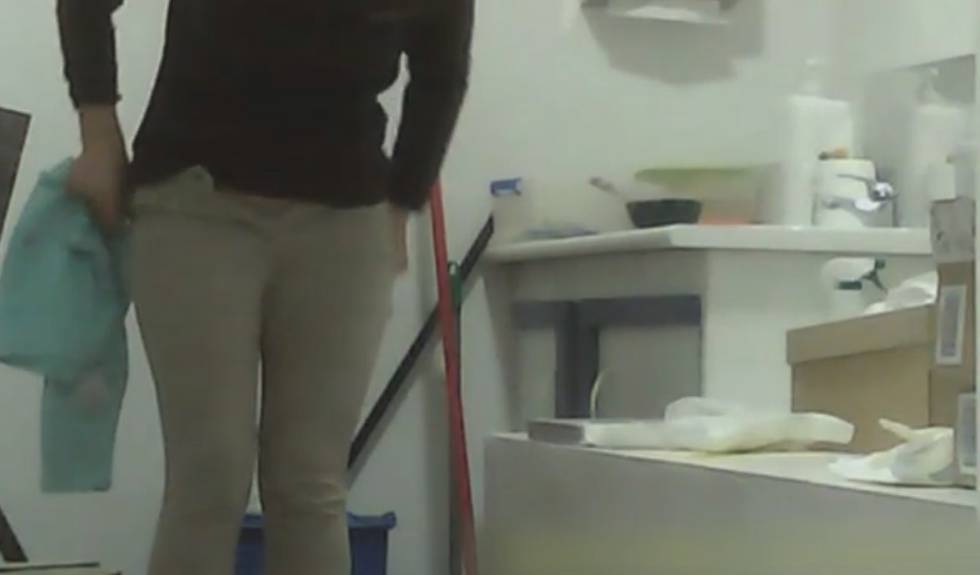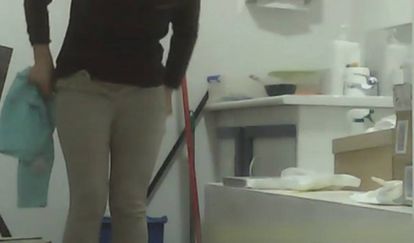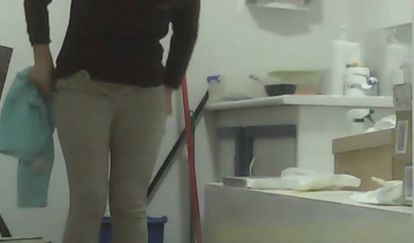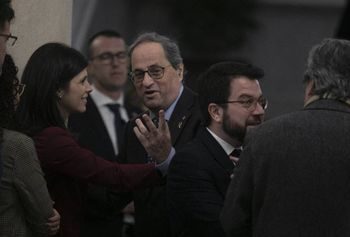

Arancha (fictitious name) was working as a receptionist at a dentists clinic in Alcorcón in the Madrid region. Every day, she would change into her uniform in a small storage-laboratory space that was made available for that purpose. One day, as she was beginning to undress with the door ajar, her boss grabbed the handle on the outside of the door.
“Can I stay? I would like to,” he asked her.
“No, no,” she replied, laughing cautiously. “Close [the door].”
In January 2019, the Supreme Court ordered the dentist to pay the victim €62,500 in damages
This conversation was recorded on a pen drive camera that had been placed in the room by the dentist to spy on Arancha. Months later, the exchange would stand out for Judge José Pedro Vázquez, from the criminal court in nearby Móstoles. “These are words that, said jokingly, enclose an unfathomable truth to the human soul. What is colloquially known as half serious, half joking,” he wrote in his verdict. “In the present case, the accused is truly anxious to see [the victim] without the cover of clothing.”
The judge has sentenced the dentist, identified by the initials J. A. R. R., to three years in prison for crimes against privacy, aggravated by abuse of trust. According to the verdict, issued in December and to which EL PAÍS has had access, the judge found the 53-year-old guilty of placing a camera in the storage room to film his employee while she got changed. Vázquez agreed with the public prosecutor that the recordings were made with “lewd intentions” because “no other kind of intention makes sense.” The judge dismissed the dentist’s claims that the camera was put there because money had gone missing from a safe in the room, pointing out that the pen drive was positioned to give an “optimum close-up view” of the worker.
The victim said she discovered she was being recorded in February 2016, when she found the USB device on the floor of the clinic’s reception area. Arancha told the court that she thought the pen drive had been lost by someone, and connected it to a computer to see if she could find out who it belonged to. Instead, she found out that she had been recorded on a hidden camera: the device contained video of her undressing down to her underwear. She decided to leave the USB on the floor, reviewed the angle of the camera and later swapped it.
Although the judge doubted whether the hidden camera was found this way, given that her lawyer had tried to reach a settlement with the dentist before going to court, he did not believe the videos had been tampered with. According to Vázquez, Arancha had been “completely unaware” of the situation. He added that the details over how the USB was found do not “undo the reality that the accused used a device to record private scenes of the complainant.” Arancha’s lawyer, Juan Antonio Jiménez-Piernas told the court: “We never wanted to get to this point, but the accused preferred to make my client relive what happened, forcing us to have to defeat him in court.”
Arancha’s victory in the criminal court comes on the back of a victory in civil court. In January 2019, the Supreme Court sentenced the dentist to pay her €62,500 in damages for “seriously and repeatedly breaking her basic rights” as a worker.
The judge ruled that the recordings were made with “lewd intentions”
In his ruling, Judge Vázquez also banned the 53-year-old from practicing as a dentist for three years and ordered him to pay a fine of €7,500, plus €3,000 in compensation to the victim. “You only have to look at the great divide between the compensation that we won through in the labor court, and what was offered by the criminal court, to recognize that the procedural strategy was a complete success,” said Jiménez-Piernas.
In his ruling, Vázquez also rejected another line of defense from the dentist’s lawyers, who accused Arancha of filming herself “to get money out of [the accused] in the most despicable way.” The judge replied: “But that does not explain the recordings in which [the dentist] is seen at [Arancha’s] side, or when he is seen when she has just disappeared from the scene.” He added in his verdict that “on at least six occasions, before the time that [the victim] began work, the accused activated a device to record image and sound, which he left running. When she left the storage room, the accused returned and stopped the recording.” All of this evidence ended up recorded.
English version by Melissa Kitson.
Get real time update about this post categories directly on your device, subscribe now.




















